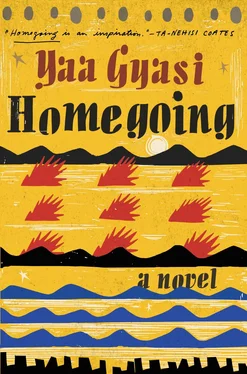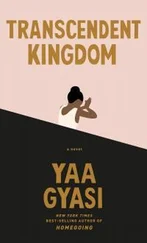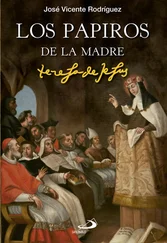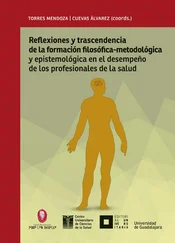*
H shoveled his last thousand pounds of coal as a convict in 1889. He had been working in Rock Slope for almost all of his incarceration, and his hard work and skill had shaved a year off his sentence. The day the elevator shaft took him up into the light and the prison warden unshackled his feet, H looked straight up at the sun, storing up the rays, just in case some cruel trick sent him back to the city underground. He didn’t stop staring until the sun turned into a dozen yellow spots in his eyes.
He thought about going back home, but realized that he didn’t know where home was. There was nothing left for him on the old plantations he’d worked, and he had no family to speak of. The first night of his second freedom, he walked as far as he could, walked until there was no mine in sight, no smell of coal clinging to his nostrils. He entered the first bar he saw that contained black people, and with the little money he had, he ordered a drink.
He had showered that morning, tried to rub the clench marks of the shackles from his ankles, the soot from underneath his nails. He had stared at himself in the mirror until he was confident that no one could tell he had ever been in a mine.
Sipping his drink, H noticed a woman. All he could think was that her skin was the color of cotton stems. And he missed that blackness, having only known the true blackness of coal for nearly ten years.
“Excuse me, miss. Could you tell me where I am?” he asked. He hadn’t spoken to a woman since the day he called Ethe by another woman’s name.
“You ain’t looked at the sign ’fore you came in?” she asked, smiling.
“I reckon I ain’t,” he said.
“You in Pete’s bar, Mr….”
“H is my name.”
“Mr. H is my name.”
They talked for an hour. He found out her name was Dinah and she lived in Mobile but was visiting a cousin there in Birmingham, a very Christian woman who would not care to see her kin drinking. H had just about gotten it into his head to ask her to marry him when another man stepped in to join them.
“You look mighty strong,” the man said.
H nodded. “I s’pose I am.”
“How you got to be so strong?” the man asked, and H shrugged. “Go on,” the man said. “Roll up yo sleeve. Show us some muscle.”
H started laughing, but then he looked at Dinah, and her eyes were twinkling in that way that said maybe she wouldn’t mind seeing. And so he rolled up his sleeve.
At first, both people were nodding appreciatively, but then the man came closer. “What’s that?” he said, tugging where the sleeve met H’s back until he’d made a rent in the fabric, and the whole cheap thing tore loose.
“Dear Lord!” Dinah said, covering her mouth.
H craned his neck trying to look at his own back, but then he remembered and knew he didn’t need to. It had been nearly twenty-five years since the end of slavery, and free men were not supposed to have fresh scars on their backs, the evidence of a whip.
“I knew it!” the man said. “I knew he was one of them cons from over at the mines. Ain’t nothin’ else he could be! Dinah, don’t you waste any more time talking to this nigger.”
She didn’t. She walked away with the man to stand on the other side of the bar. H rolled his sleeve back down and knew that he couldn’t go back to the free world, marked as he was.
He moved to Pratt City, the town that was made up of ex-cons, white and black alike. Convict miners who were now free miners. His first night there, he asked around for a few minutes until he found Joecy, along with his wife and children, who had moved out to Pratt City to be with him.
“Ain’t you got no one?” Joecy’s wife said, frying up some salt pork for H, working hard to make up for the fact that he had not eaten a good meal for ten years, maybe more.
“Had a woman named Ethe, long time ago, but I reckon she ain’t gon’ wanna hear from me now.”
The wife gave him a piteous look, and H figured she was thinking she knew the whole story of Ethe, having married a man herself before the white man came and labeled him con.
“Lil Joe!” the wife called, over and over, until a child appeared. “This our son, Lil Joe,” she said. “He know how to write.”
H looked him over. He couldn’t have been more than eleven years old. He was knobby-kneed and clear-eyed. He looked just like his father, but he was different too. Maybe he wouldn’t end up the kind of man who needed to use his body for work. Maybe he’d be a new kind of black man altogether, one who got to use his mind.
“He gon’ write yo woman,” the wife said.
“Naw,” H said, thinking about how Ethe had fled the room the last time they were together, fled like a spirit was chasing her. “Ain’t no need.”
The wife clucked her tongue twice, three times. “I ain’t gon’ hear none of that,” she said. “Somebody gotta know you free now. Somebody in this world need to know at least that.”
“With all due respect, ma’am. I got myself, and that’s all I ever needed.”
Joecy’s wife looked at him long and hard, and H could see all the pity and anger in that look, but he didn’t care. He didn’t back down, and so, finally, she had to.
The next morning, H walked with Joecy over to the mine to ask for work as a free laborer.
The boss man was called Mr. John. He asked H to take off his shirt. He inspected the muscles on his back and on his arms, and whistled.
“Any man what can spend ten years working at Rock Slope and live to tell about it’s worth a-watching. Made some deal with the devil, have you?” Mr. John asked, looking at H with his piercing blue eyes.
“Just a hard worker, sir,” Joecy said. “Hard and smart, too.”
“You vouch for him, Joecy?” Mr. John asked.
“Ain’t none better but me,” Joecy said.
H left with a pick in his hands.
—
Pratt City life was not easy, but it was better than the living H had known anywhere else. He had never seen anything like it before. White men and their families next door to black men and theirs. Both colors joining the same unions, fighting for the same things. The mines had taught them that they had to rely on each other if they wanted to survive, and they had taken that mentality with them when they started the camp because they knew no one but a fellow miner, a fellow ex-con, knew what it was like to live in Birmingham and try to make something of a past that you would sooner forget.
The work H did was the same, only now he got paid for it. Proper wages, for he had once been a first-class man, contracted by coal companies from the state prison for nineteen dollars a month. Now that money went into his own pocket, sometimes as much as forty dollars in a single month. He remembered what little he had saved sharecropping for two years at the Hobbs plantation, and he knew that in some dark and twisted way the mine was one of the best things that had happened to him. It taught him a new skill, a worthy one, and his hands would never have to pick cotton or till land ever again.
Joecy and his wife, Jane, had been gracious enough to let H move in with them, but H had tired of living off of and around other people and their families. So he spent the better part of his first month in Pratt City coming back from the mine and then heading straight to the plot of land next to Joecy’s place to start building his own house.
H was out there one night, hammering wood, when Joecy came to see him.
“Why ain’t you joined the union yet?” Joecy asked. “We could use somebody with your temper.”
He had gotten good lumber from another old friend from the mine and the only time he could work on building the house was between 8:00 p.m. and 3:00 a.m. At every other waking hour, he was down in the mines.
Читать дальше

![Ally Carter - [Gallagher Girls 01] I'd Tell You I Love You But Then I'd Have to Kill You](/books/262179/ally-carter-gallagher-girls-01-i-d-tell-you-i-lo-thumb.webp)










